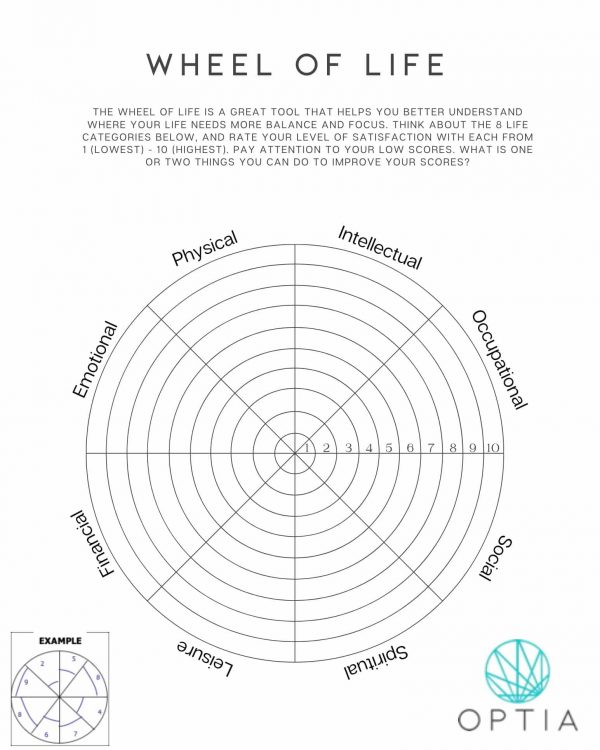
by Jessie Spressart
Jessie Spressart is the Founder and Managing Director of Optia Consulting. She brings more than fifteen years of experience in talent management and law firm professional development to her coaching and consulting practice.
Jessie founded Optia with the mission to help law firms improve well-being through solutions designed to capitalize on the strengths of each generation in the workforce today. Optia provides consulting and training on management and leadership skills, and mental health and well-being in the workplace. Jessie is certified by the National Council for Mental Wellbeing as an instructor for Mental Health First Aid and helps firms talk about and improve mental health among their attorneys and business professionals.
Prior to founding Optia, Jessie worked in consulting and spent more than a decade building and leading the professional development department at a law firm in Washington DC. Jessie is an ICF-accredited executive coach and holds Master’s degrees from Fordham University and St. Andrews University.
You can reach Jessie at jessie@optiaconsulting.com
There are many reasons why you might decide it’s time to look for a new position at another firm. You might realize that you’re not learning as much as you would like or that another practice would suit you better elsewhere.
Personal well-being is another key reason. Lawyers are constantly under a great deal of pressure, and it can be tough to know what is work-appropriate stress and when you need to take a step back and reassess things. If you’re feeling overwhelmed and your well-being is suffering, it might be time to consider a new role or determine how to improve your well-being in your current role.
Let’s look at some signs that indicate your well-being may be suffering, using the well-being framework from theABA’s Well-being Toolkit for Lawyers & Legal Employers:
– Physically: You don’t make time to move your body, and your sleep is suffering. You’re eating more meals at your desk than you’d like (or skipping them altogether) and not getting enough of the nutrients you need to fuel your brain and body. Maybe you’re putting off necessary medical appointments because you can’t find time to make the appointment, let alone go to one.
– Emotionally: Do you get the “Sunday Scaries” and dread the start of the work week (maybe because you’re still finishing up the previous work week on Sunday afternoon)? Your mental and emotional health might be suffering if you notice that minor disruptions to your day or routine become huge derailers, and your reactions are not in line with the size of the issue at hand. Maybe you’re experiencing heightened levels of anxiety or depression or feel like you can’t cope with everyday stress the way you “normally” would.
– Socially: Your ability to connect with others – family, friends, colleagues, and clients is suffering. You find it difficult to carve out time to relax and be in relationship with others. You might feel like you don’t have a support network who can be there for you when you need them.
– Occupationally: If you’re not enjoying your work, finding the motivation to keep going can be challenging. When you’re not feeling like your work is making a difference, it can be easy to become discouraged. No one will like all the work they do, all of the time, but if the feeling of inefficacy lasts too long, you might want to pay attention to what needs to change.
– Intellectually: Are you able to pursue things that interest you, whether related to work or not? If not, think about how you might incorporate some hobbies or interests that foster your ongoing development – for yourself, not your clients.
– Spiritually: Meaning and purpose are essential for well-being, and when we connect to something bigger, higher, or broader than ourselves, we tap into something that can nourish us on a different level. Whether it’s a religious community or communing with nature, it’s important to incorporate this aspect of well-being, too.
If you read through the above and thought, “Uh-oh,” you’re not alone! It is completely normal to find that one or two aspects of our well-being are not where we want them to be at any given moment. Let’s be honest – a perfectly balanced life is pretty precarious!
We are constantly shifting what we need to focus on. For example, maybe you’re working on a deal that requires a few late nights or are prepping for trial, and your regular routine has been disrupted. That’s part of the job, right? However, if the busy deal or casework reverts to normalcy, but the late nights don’t revert to solid stretches of 7+ hours a night (as recommended by sleep experts), consider what needs to change in order for you to create better sleep habits.
If you’re unsure where to start evaluating your overall well-being, try the Wheel of Life tool below. Rate yourself on the various dimensions, and then consider where you need to focus efforts to improve your well-being.
Once you pinpoint the areas for improvement, it is then helpful to consider how you can improve them. Is a job change required, or can you improve your well-being while maintaining your current role?
Consider, “what are one or two small things I can do to bring more balance and improve my well-being?” Maybe this means taking 15 minutes per day for light physical activity and fresh air, blocking out a short time slot for a meal without work distraction, setting a weekly time in your calendar for something you enjoy (such as connecting with friends), or seeking out work within the firm that is more fulfilling or exciting for you.
Small steps can add up to a significant impact, so don’t tell yourself you can only do better if you change big things all at once: as a law firm attorney, it is often not realistic to introduce large changes. For example, your schedule may not allow for 60 minutes of exercise a day or cooking all of your meals. Drastic large changes are also more difficult to maintain over the long-term and end up falling by the wayside.
Remember, you don’t need to do this alone! If you’re struggling, reach out to friends and family for support. Check with your firm to see what support they offer – many firms have internal career advisors, professional development managers, and/or partnerships with mental health counseling providers. Consider professional support like coaching or therapy – there is no shame in seeking help.
And if, at any time, you feel like you are in crisis and can’t cope, text 741741 or dial 988 for the Suicide and Crisis Lifeline to get immediate help.
If your job-related stress continues to impact your well-being, it might be time to look elsewhere. If you do, be sure to ask clear questions during the process about those areas that have impacted your well-being in your current job. And after receiving an offer, it is important to ask attorneys in a similar position about their day-to-day routine. In addition, it is also important to understand the firm’s well-being initiatives and support during the interview process. This way, you can make sure you are making a change that will improve your well-being and overall health.
If your job-related stress continues to impact your well-being, it might be time to look elsewhere. If you do, be sure to ask clear questions during the process about those areas that have impacted your well-being in your current job. And after receiving an offer, it is important to ask attorneys in a similar position about their day-to-day routine. In addition, it is also important to understand the firm’s well-being initiatives and support during the interview process. This way, you can make sure you are making a change that will improve your well-being and overall health.






